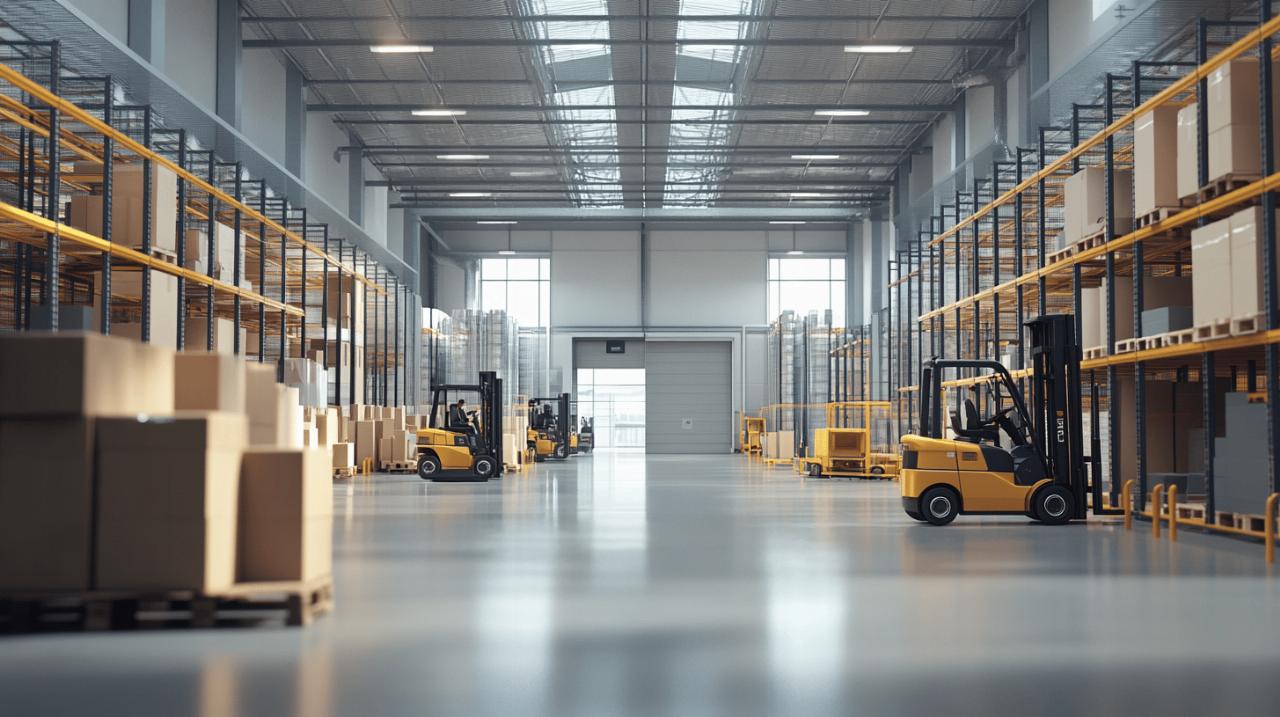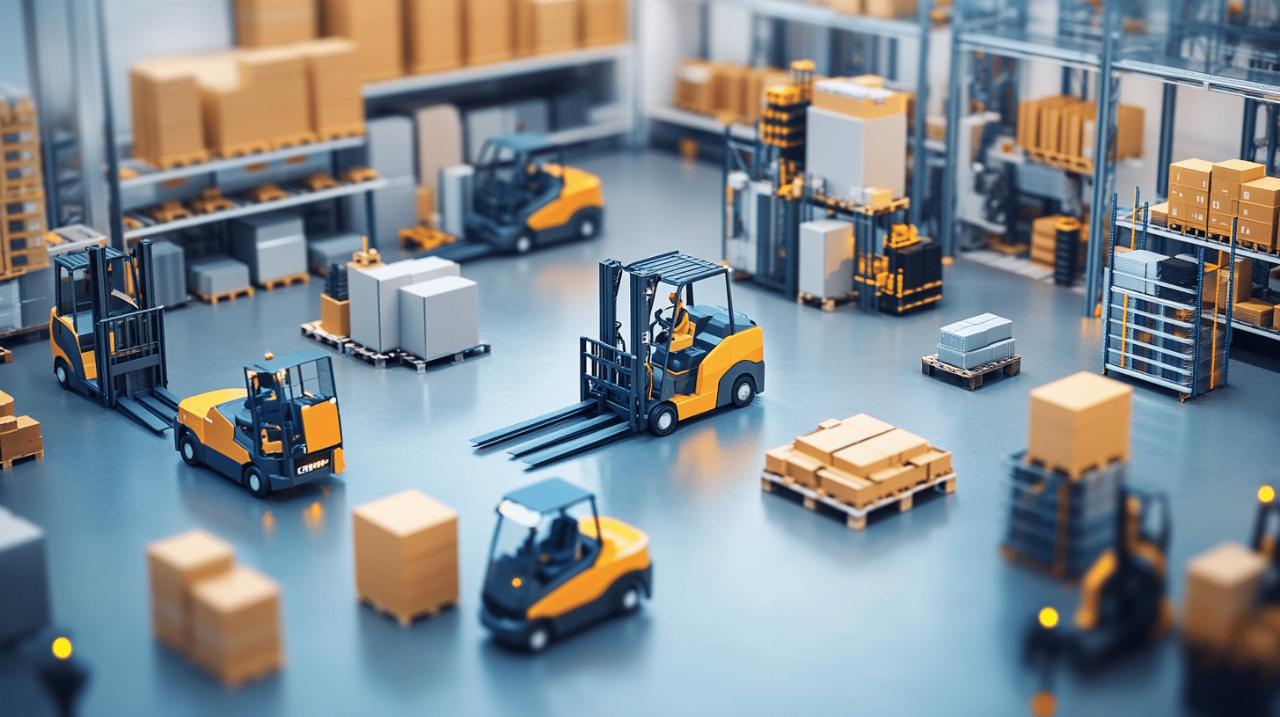How Karister, an e-commerce specialised in materials handling, is Revolutionising AGV Technology in UK Warehouses
The landscape of materials handling in the United Kingdom has undergone a remarkable transformation in recent years, with technological innovations reshaping how warehouses operate. At the forefront of this revolution stands Karister, an e-commerce firm specialising in materials handling solutions designed to streamline logistics operations for businesses across the country. As warehouses become increasingly automated, Karister's approach to integrating cutting-edge AGV technology represents a significant shift in how British businesses manage their supply chains.
The Evolution of Materials Handling in UK Warehouses
Traditional warehousing challenges faced by British businesses
For decades, UK warehouses have grappled with inefficiencies inherent in manual operations. From labour-intensive picking processes to human error in inventory management, these challenges have consistently undermined operational efficiency and driven up costs. The traditional warehouse model has struggled to keep pace with the explosive growth of e-commerce, which reached a staggering US$13 trillion globally in 2021 and continues to expand at a compound annual growth rate exceeding 27% over the next five years. In the UK specifically, this growth trajectory is projected at over 21%, creating unprecedented pressure on existing warehousing infrastructure and systems.
Karister's innovative approach to logistics optimisation
Karister has positioned itself as a pioneer in warehouse innovation by leveraging material handling automation through Automated Guided Vehicles (AGVs) and Autonomous Mobile Robots (AMRs). Rather than offering piecemeal solutions, the company takes a holistic view of the entire logistics ecosystem. Their platform integrates sophisticated robots equipped with advanced sensors including lasers and cameras, allowing these machines to navigate complex warehouse environments autonomously and safely. This technology can dramatically reduce the physical burden on human workers while simultaneously improving accuracy and throughput rates. What distinguishes Karister's approach is their focus on tailoring automation solutions to the specific needs of each warehouse operation, recognising that flexibility and adaptability are essential in today's rapidly evolving market conditions.
Comprehensive Logistics Solutions from Warehouse to Doorstep
Streamlining order preparation and inventory management
The foundation of Karister's offering lies in their comprehensive order management and inventory control systems. Their platform employs a network of AGVs that can transport components with remarkable precision, efficiently handling palletising and depalletising operations that would traditionally require significant manual labour. These robots can reduce pick times by up to 60% and operate at efficiency levels three to six times higher than conventional systems. For warehouse operations managing vast inventories, Karister's automated storage and retrieval systems (AS/RS) optimise space utilisation while maintaining real-time inventory visibility. This level of automation allows warehouses to function with greater precision, adaptability, and efficiency, particularly during peak demand periods when traditional systems often struggle to scale.
Flexible delivery options enhancing customer satisfaction
Beyond the warehouse walls, Karister extends its logistics expertise to the final delivery phase, offering multiple fulfilment models that integrate seamlessly with existing operations. Their platform supports diverse delivery options, including home delivery and collection points, giving end customers greater choice and convenience. The system accommodates various logistics scenarios, from dropshipping to third-party logistics partnerships and in-house fulfilment. Perhaps most importantly, Karister has developed robust returns processing capabilities, addressing a critical challenge in modern e-commerce where return rates average 17% across industries and can reach 20-30% for apparel and footwear. By optimising the entire journey from warehouse to doorstep, Karister enables businesses to deliver superior customer experiences while maintaining operational efficiency.
Cost reduction and efficiency gains through smart technology
How AGV technology is transforming operational costs
The financial implications of adopting Karister's AGV technology are substantial. While the initial investment for a modest deployment of 50 to 100 robots typically ranges from £2m to £3m, the return on investment manifests through multiple channels. Labour costs decrease significantly as robots take over repetitive, physically demanding tasks. Warehouse space utilisation improves dramatically, with automated systems often requiring less clearance space than human-operated equipment. Energy efficiency gains emerge through optimised movement patterns and reduced lighting requirements in sections where only robots operate. Moreover, the precision of AGV operations substantially reduces product damage and picking errors, eliminating costly mistakes that plague manual operations. For businesses facing post-Brexit labour shortages in warehouse operations, Karister's automation solutions address a pressing practical concern while simultaneously driving down long-term operational costs.
Measuring the impact on business performance metrics
Case studies from Karister implementations demonstrate remarkable improvements across key performance indicators. One engine manufacturing facility reported a 40% efficiency improvement after deploying Karister's AGV solutions, while a narrow aisle handling project in the automotive sector achieved a 50% efficiency increase. These gains translate directly to bottom-line benefits, with most clients experiencing enhanced order accuracy rates, faster order fulfilment times, and improved inventory turnover. The platform also generates valuable operational intelligence through comprehensive data collection and analysis, enabling continuous optimisation of warehouse processes. This data-driven approach allows businesses to identify bottlenecks, predict maintenance needs, and make informed decisions about resource allocation, creating a cycle of ongoing improvement rather than a one-time efficiency gain.
Future-proofing supply chains with karister's platform
Integration capabilities across multiple sales channels
The modern retail landscape demands omnichannel capabilities, and Karister has designed their platform with seamless integration in mind. Their system connects effortlessly with existing enterprise resource planning (ERP) and manufacturing execution systems (MES), enabling real-time data flow across the entire business operation. This integration extends to various sales channels, from traditional retail to e-commerce marketplaces, allowing businesses to maintain consistent inventory and fulfilment practices regardless of where orders originate. The system's flexibility proves particularly valuable for businesses operating micro fulfilment centres (MFCs), which typically occupy less than 10,000 square metres and hold just 24-48 hours of inventory. These smaller, more agile facilities require sophisticated coordination to function efficiently within broader supply chain networks, a challenge that Karister's platform specifically addresses.
Building resilience in global market operations
As global supply chains face unprecedented challenges, from pandemic disruptions to geopolitical uncertainties, Karister's technology offers a path to greater operational resilience. Their intralogistics solutions provide the adaptability needed to respond quickly to shifting market conditions and demand patterns. The sortation and conveyor systems enable rapid reconfiguration of warehouse operations, while robotics integration facilitates scaling up or down as needed. For businesses with international operations, Karister's platform offers standardised processes that can be implemented across multiple locations while accommodating local requirements. As the global smart warehousing market expands toward an expected $29 billion by 2028, Karister's forward-looking approach positions UK businesses to compete effectively on the world stage, turning logistics excellence into a strategic advantage rather than merely a cost centre.
Cutting-edge agv implementation for enhanced warehouse automation
 Karister, a leading e-commerce firm specialised in materials handling, is making significant strides in transforming UK warehouse operations through advanced robotics technology. As a platform dedicated to optimising the entire logistics process, Karister has positioned itself at the forefront of warehouse automation by implementing state-of-the-art Automated Guided Vehicles (AGVs) and Autonomous Mobile Robots (AMRs). These solutions are revolutionising how businesses manage their warehousing operations, from stock management to order fulfilment and delivery.
Karister, a leading e-commerce firm specialised in materials handling, is making significant strides in transforming UK warehouse operations through advanced robotics technology. As a platform dedicated to optimising the entire logistics process, Karister has positioned itself at the forefront of warehouse automation by implementing state-of-the-art Automated Guided Vehicles (AGVs) and Autonomous Mobile Robots (AMRs). These solutions are revolutionising how businesses manage their warehousing operations, from stock management to order fulfilment and delivery.
The smart warehousing market is projected to reach £29 billion by 2028, highlighting the growing demand for automation solutions like those offered by Karister. With e-commerce booming in the UK at a compound annual growth rate of over 21% for the next five years, businesses are increasingly turning to robotic solutions to maintain competitive edge and operational efficiency.
Seamless integration of AMRs with existing warehouse infrastructure
Karister's approach to warehouse automation focuses on the smooth integration of AMRs with clients' existing warehouse systems. These autonomous robots use advanced sensors including lasers and cameras, paired with sophisticated programming to navigate warehouse environments safely and efficiently. Unlike traditional fixed automation systems, Karister's mobile robots offer remarkable flexibility, allowing businesses to adapt their logistics operations without major structural changes to their facilities.
The integration process addresses several key aspects of warehouse operations. AMRs can be programmed to work alongside existing conveyor systems and automated storage and retrieval systems (AS/RS), creating a cohesive intralogistics network. This integration enables real-time data collection across the entire warehouse operation, providing valuable insights for continuous improvement and optimisation.
Karister's robotics solutions are particularly valuable for UK businesses facing labour shortages post-Brexit. The reduced availability of warehouse operatives has made automation an increasingly attractive option. Rather than simply replacing workers, these systems take over repetitive, physically demanding tasks while creating opportunities for staff to focus on more skilled roles within the operation.
Real-world efficiency gains from Karister's robotics solutions
The implementation of Karister's AGV technology has delivered impressive results across various warehouse environments. Their robotic solutions have demonstrated the ability to reduce pick times by up to 60%, making them three to six times more efficient than conventional systems. This dramatic improvement in efficiency translates directly to faster order fulfilment, a crucial factor in meeting the rising expectations of e-commerce customers.
Palletising and depalletising operations, traditionally labour-intensive and injury-prone, have been transformed through Karister's automation solutions. Their robots excel at stacking and unstacking pallets with precision and consistency, reducing product damage while increasing throughput. Similarly, in order fulfilment operations, AMRs work efficiently to transport items from storage locations to packing stations, minimising travel time and maximising productivity.
Beyond the immediate operational benefits, Karister's robotics solutions provide remarkable flexibility during peak seasons. E-commerce businesses experiencing dramatic volume fluctuations during events like Black Friday can scale their operations more effectively with mobile robots than with fixed automation. This adaptability, combined with enhanced space utilisation and improved inventory management, delivers substantial cost savings while boosting customer satisfaction through faster, more accurate deliveries.
